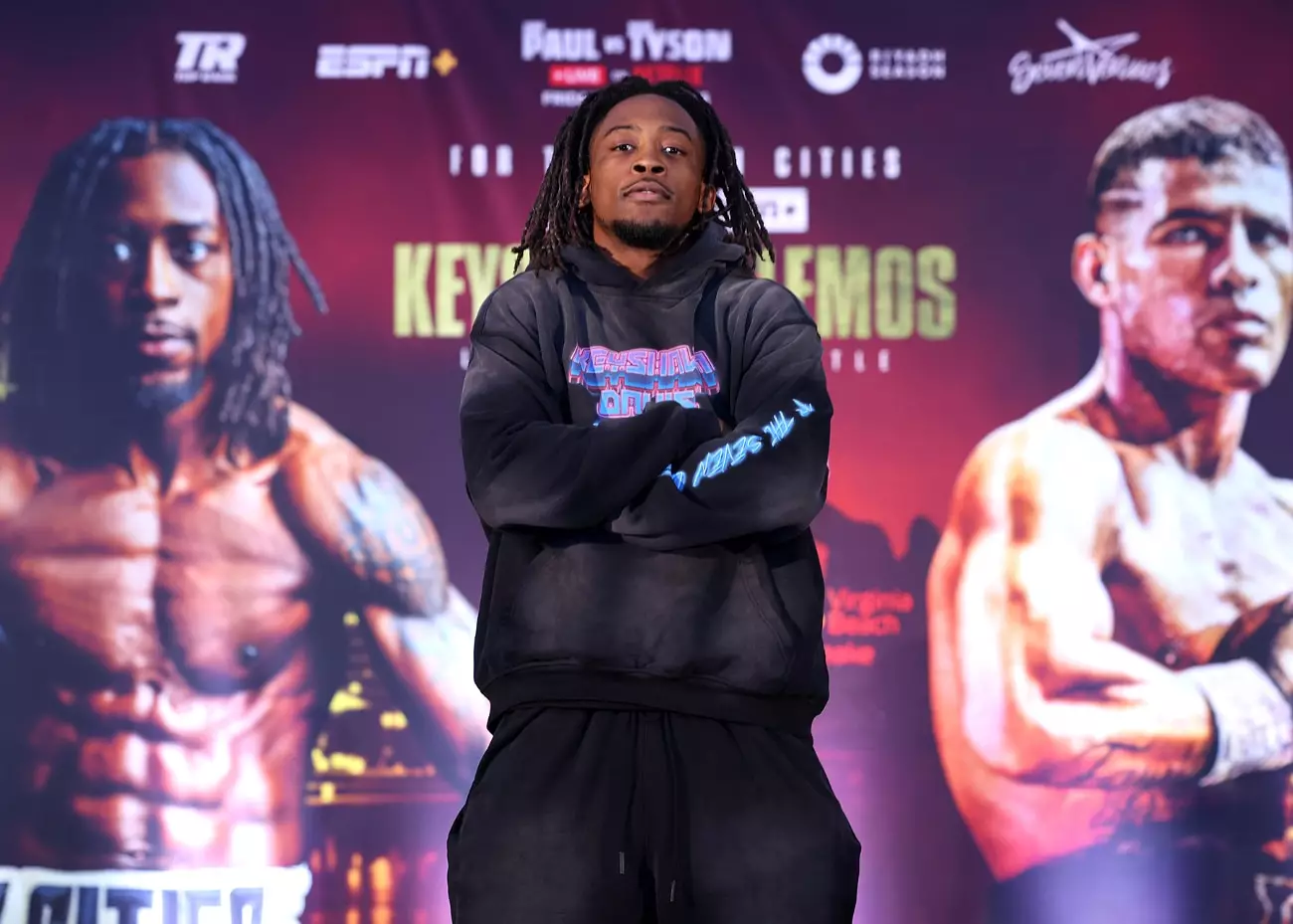Boxing fans received a fresh dose of drama when unbeaten lightweight Keyshawn Davis responded to comments made by the WBA champion Gervonta ‘Tank’ Davis, who implied that Davis was not worth his time. Keyshawn, currently boasting an impressive record of 11-0 with 7 knockouts, didn’t hold back his criticism, referring to Tank as “soft” and questioning the popularity and ticket sales of Tank’s recent opponents. This confrontation not only showcases Keyshawn’s brimming confidence but highlights the competitive nature of the lightweight division, where egos and ambitions clash regularly.
Ticket Sales and Fighting Spirit
Keyshawn’s counterarguments are quite telling. He cited the low ticket sales of Tank’s recent challengers, Frank Martin and Lamont Roach, suggesting that his own ability to draw a crowd is evidence of his rising popularity and marketability. Davis is set to take on Gustavo Lemos this Friday in Norfolk, Virginia, and he’s adamant about his impending success in that bout, envisioning it as a gateway to bigger fights in the future. By focusing on their inability to fill arenas, he not only aimed to diminish Tank’s status but also positioned himself as a desirable opponent who can generate excitement in the boxing community.
Davis’ claims reveal his inclination to challenge established fighters while securing his place among the sport’s elite. He passionately proclaimed, “Let’s fight, bro,” suggesting that he is itching for action against Tank and other champions at 135 pounds. This young fighter’s willingness to confront perceived slights—and indeed call out champions—demonstrates his hunger and ambition that are often necessary traits for anyone looking to make a mark in the boxing world.
Aiming for the Belt and Recognition
Keyshawn has expressed a clear goal: he wishes to claim the WBO lightweight title from Denys Berinchyk, positioning himself for more significant matchups thereafter. The determination he shows gives insight to fans about his professional approach and aspirations. Interestingly, Keyshawn also took swipes at Gervonta’s past fighting record, questioning if Tank was capable of selling out arenas when he was at the same stage in his career. This strategy of referencing history to diminish another fighter’s accomplishments provides compelling rhetoric that will resonate with fans who appreciate the competitive banter of boxing.
In conjunction with his explosive fighting style, this verbal jousting is critical for increasing his visibility within the sport. Both the in-ring performance and out-of-ring persona are essential in an era where social media can boost a fighter’s profile as much as any performance in the ring.
With his sights set on championship glory, Keyshawn Davis stands at a crossroads where he can either solidify his reputation through consistent performances or potentially land a lucrative fight with Tank Davis should he continue to call him out. The trajectory for both fighters looks promising, but it’s their willingness to engage in face-offs that promises to define the future of the lightweight division.
In what could be an electrifying rivalry that unfolds in the coming years, fans and analysts alike are eager to see whether Keyshawn’s pursuit of Tank Davis culminates in an eagerly anticipated bout, thus adding yet another layer of excitement to a sport already abundant with dramatic narratives.

